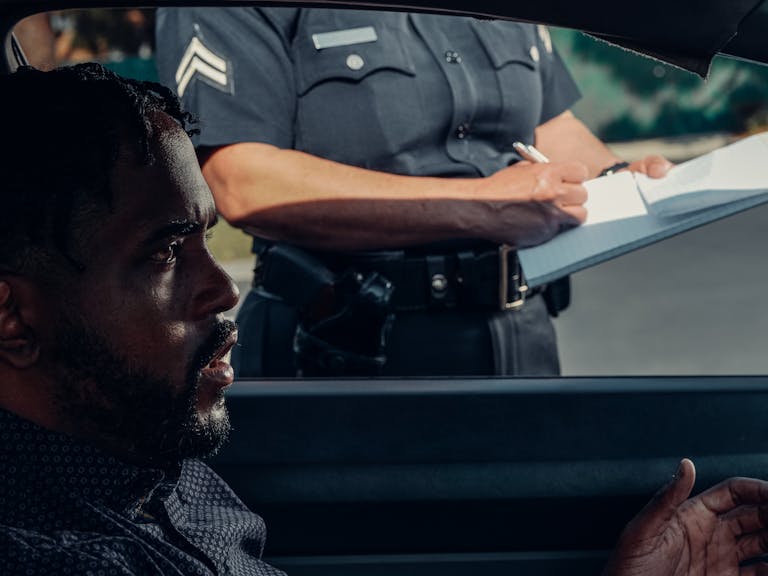Can You Join the Military with a Felony? Enlist with a Record
Imagine this: You’ve got a felony on your record, but you’ve always dreamed of serving your country. Is all hope lost, or is there a chance you could still rock that uniform?
The Cold, Hard Facts: Felons in the Military by the Numbers
Before we dive in, let’s look at some eye-opening statistics:
| Military Enlistment Statistics | Numbers |
| Percentage of Americans with felony records | ~8% |
| Felony waivers granted by the Army (2019) | ~500 |
| Percentage of recruits requiring moral waivers | ~2% |
| States with “Clean Slate” laws for felons | 7 |
| Average wait time for felony waiver processing | 2-6 months |
Don’t let these numbers make you wave the white flag just yet! While the path may be challenging, it’s not always impossible. (Psst! If you’re looking to clean up your record, check out our partners for expert help in navigating the legal maze!*)
The Million-Dollar Question: Can You Actually Join with a Felony?
Alright, let’s break it down like a drill sergeant on the first day of boot camp:
- Official Policy:
- Generally, felony convictions are disqualifying
- BUT (and it’s a big but) waivers are possible
- Waiver Eligibility:
- Depends on the nature of the felony
- Time elapsed since conviction
- Evidence of rehabilitation
- Branch Variations:
- Army tends to be most lenient
- Air Force and Navy more restrictive
- Marines… let’s just say they’re picky
- Current Military Needs:
- Recruitment shortfalls can lead to more waivers
- Specialized skills might increase your chances
Example: John was convicted of felony theft at 18. Now 25, he’s turned his life around and wants to join the Army. While his felony is a hurdle, the Army’s current recruitment needs and John’s clean record since his conviction might work in his favor for a waiver.
Felony Waivers: Your Ticket to Camouflage?
So, you’re thinking about applying for a waiver? Here’s what you need to know:
- Types of Waivers:
- Moral waivers (for criminal offenses)
- Drug waivers
- Medical waivers (for certain conditions)
- Waiver Process:
- Gather all court documents and police records
- Write a detailed personal statement
- Obtain character references
- Be prepared for a long wait (2-6 months on average)
- Chances of Approval:
- Non-violent felonies: Better odds
- Drug-related felonies: Tougher, but not impossible
- Violent felonies: Extremely challenging
- Factors Considered:
- Nature and severity of the offense
- Time since conviction
- Age at time of offense
- Evidence of rehabilitation
Remember, if you’re navigating the waiver process, a good lawyer can be your secret weapon. (Have you checked out Military Dreams Legal Services for specialized assistance?*)
The “Plan B” Brigade: Alternatives If You Can’t Enlist
So, your waiver got denied faster than a pacifist at a boxing match. Don’t throw in the towel yet! Here are some alternatives:
- Civilian Military Careers:
- Department of Defense civilian jobs
- Private military contractors
- First Responder Roles:
- Firefighting
- Emergency Medical Services
- National Service Programs:
- AmeriCorps
- Peace Corps (for non-violent felonies)
- State Defense Forces:
- 23 states have their own defense forces
- Often more lenient on criminal records
Example: Sarah’s felony drug conviction prevented her from joining the Marines. Instead, she joined her state’s defense force and now assists in emergency response operations.
The Numbers Game: Felony Waivers by Branch
Let’s break it down by military branch (based on recent years):
- Army: Most lenient, granted ~500 felony waivers in 2019
- Navy: More restrictive, focuses on non-violent offenses
- Air Force: Very selective, rarely grants felony waivers
- Marines: Extremely competitive, felony waivers are rare
- Coast Guard: Similar to the Navy, but with lower numbers
Feeling the odds stacking against you? Don’t forget, a great legal team can help tilt those odds in your favor. (Ahem, Military Dreams Legal Services might be worth a look!*)
FAQs: Your Burning Questions Answered
Q: Can I join the military with a juvenile felony?
A: Possibly. Juvenile records are often viewed more leniently, but you’ll likely still need a waiver.
Q: Does a felony expungement guarantee military acceptance?
A: No, but it significantly improves your chances. You’ll still need to disclose the expunged felony.
Q: Can I lie about my felony conviction to join the military?
A: Absolutely not. This is fraudulent enlistment and can result in severe penalties.
Q: How long after a felony conviction should I wait before applying?
A: Generally, the longer the better. Most branches want to see at least 3-5 years of clean record.
Q: Can I join the Reserves or National Guard with a felony?
A: They follow similar guidelines to active duty, but might be slightly more lenient in some cases.
Conclusion: Mission Possible?
Joining the military with a felony is like trying to complete an obstacle course blindfolded – tough, but not always impossible. Remember:
- Waivers exist for a reason
- Each case is evaluated individually
- Time and rehabilitation are your allies
Whether you’re facing a felony waiver process or exploring alternative service options, don’t lose hope. With perseverance, the right assistance (Clean Slate Attorneys or Military Dreams Legal Services, anyone?*), and a bit of luck, you might just find yourself answering the call to serve.
Remember, the path to redemption and service isn’t always straight, but it’s always honorable. Stay focused, stay determined, and who knows? That military uniform might be in your future after all!
Always research and choose legal services carefully based on your specific needs and circumstances.







